Screening
When you're having sex, it's important to get tested regularly, even if you're using protection. STIs often have no symptoms, and protection methods are not 100% effective.
There are several types of screening, and not all of them detect all STIs. The types of screening you can have depend on three factors:
Your genitals :
(Depending on whether you have a vulva or a penis, the tests performed are not the same).
Screening for people with a vulva
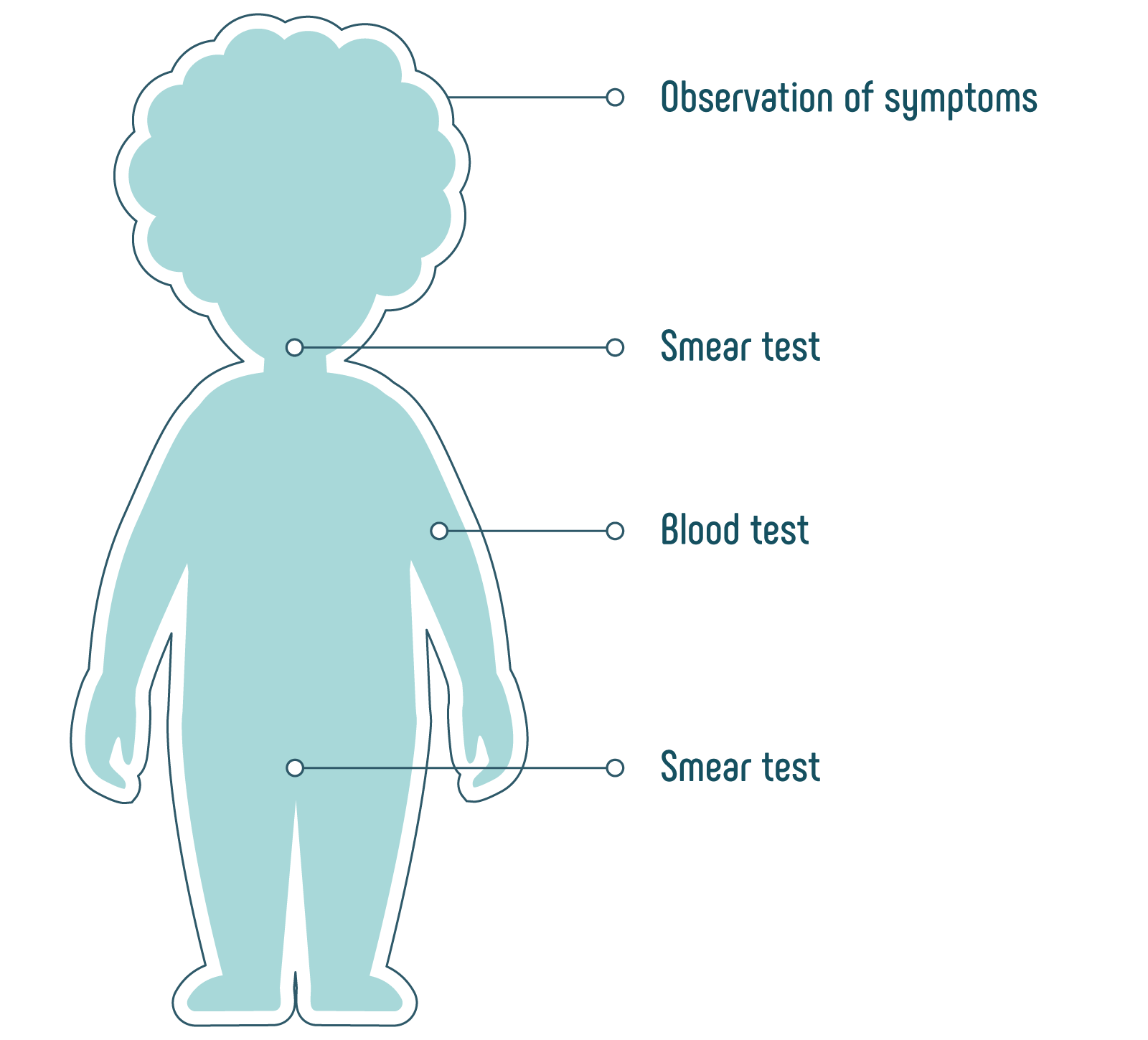
Screening for people with a penis
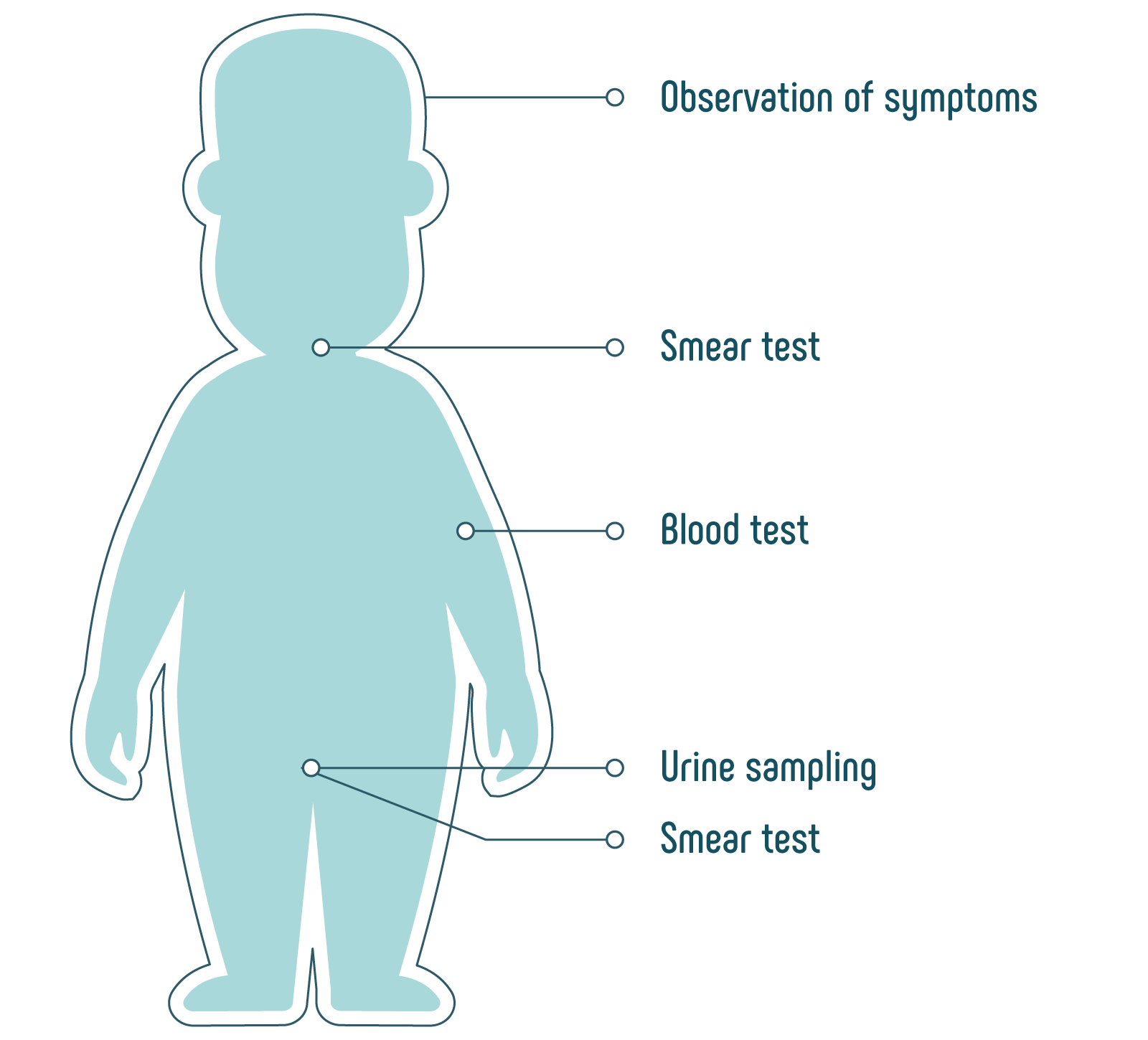
Your sexual practices:
(Depending on your sexual practices, you run different risks of being contaminated by at least one STI, and you may be exposed to particular STIs).
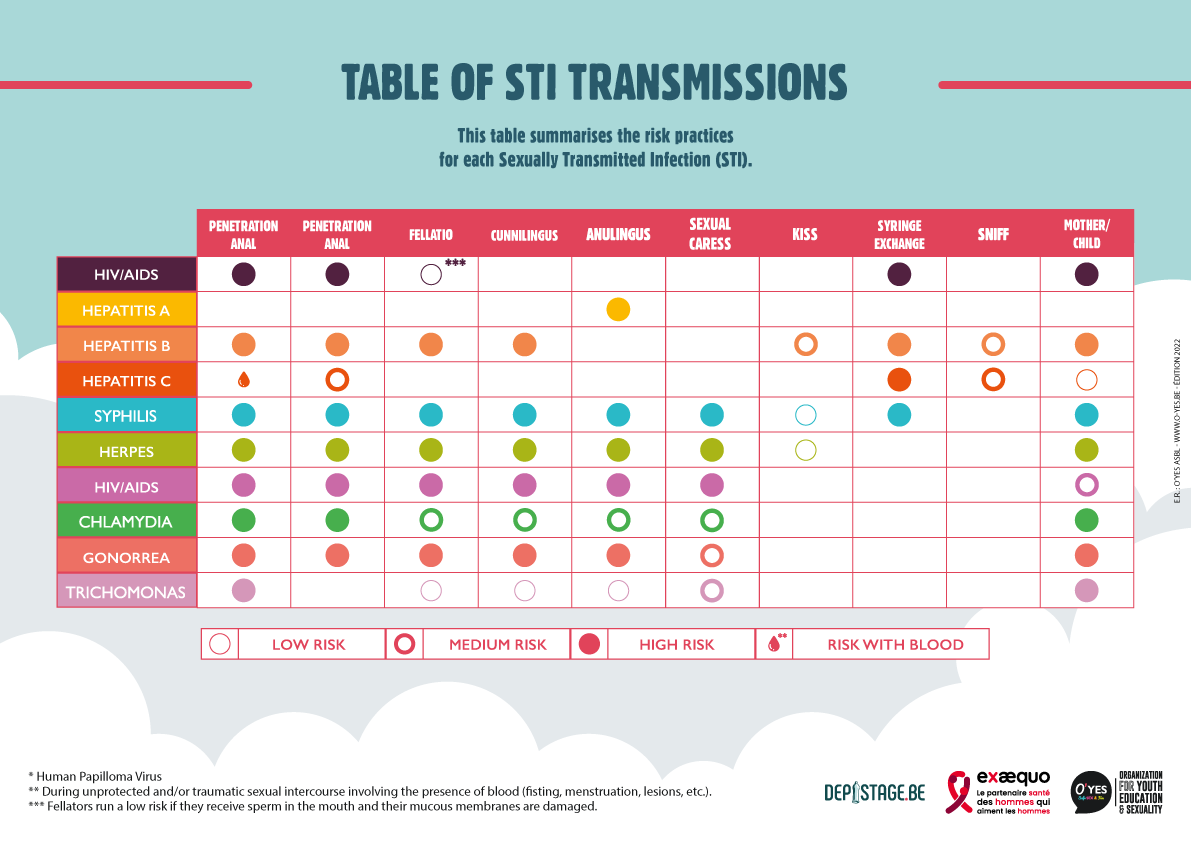
STIs sought:
(Not all STIs can be tested for in the same way. For example, a blood test will detect HIV, hepatitis and syphilis, but not gonorrhea or chlamydia. Consult the table below to find out which tests to carry out to detect them all, and talk to a health professional. This table gives general information; in some cases, additional medical tests may be necessary).
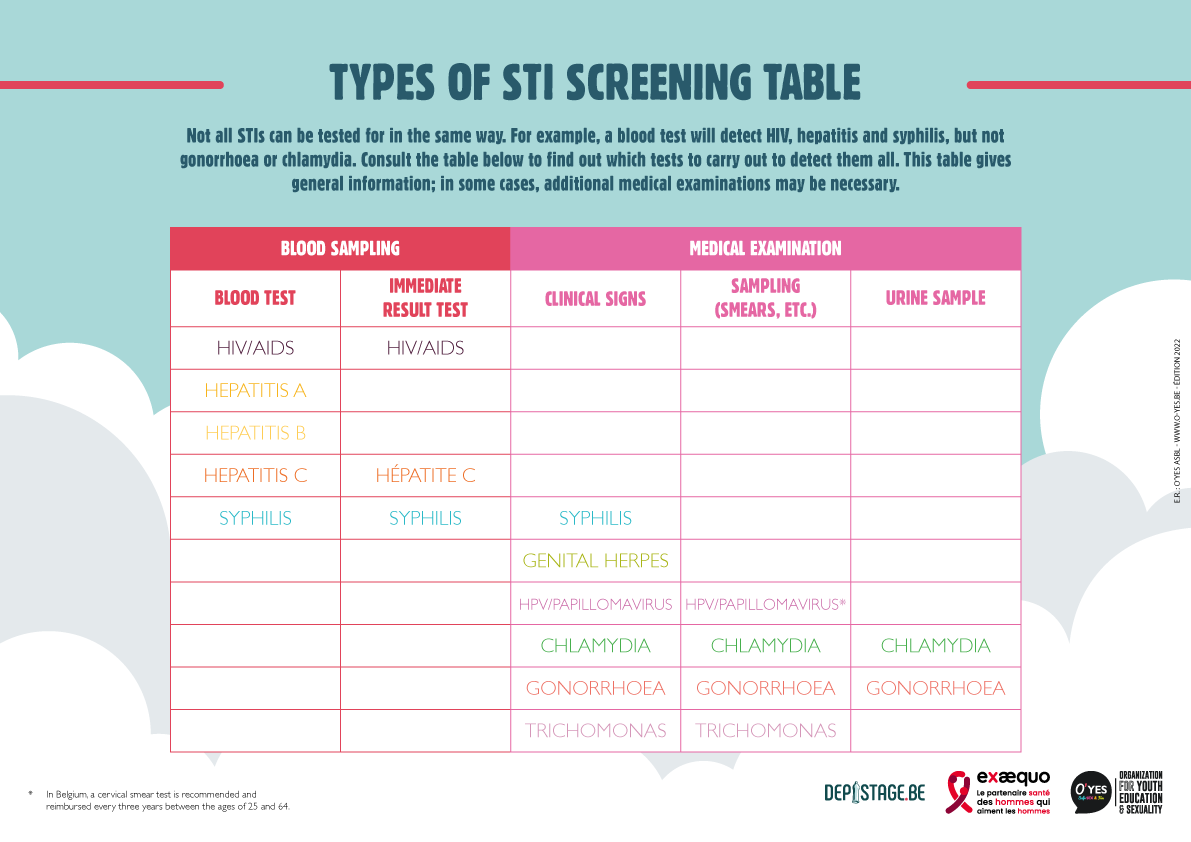
Herpes* : Herpes can only be diagnosed if symptoms are present. Papillomavirus ** For papillomavirus, symptoms can appear months or even years after the first infection! In Belgium, a cervical smear test is recommended and reimbursed every three years between the ages of 25 and 64. For the uterus, if the gynecologist systematically takes a smear if he/she finds lesions. or if he/she finds lesions. For the anus and penis, screening will only be carried out if symptoms are apparent.
The different types of screening :
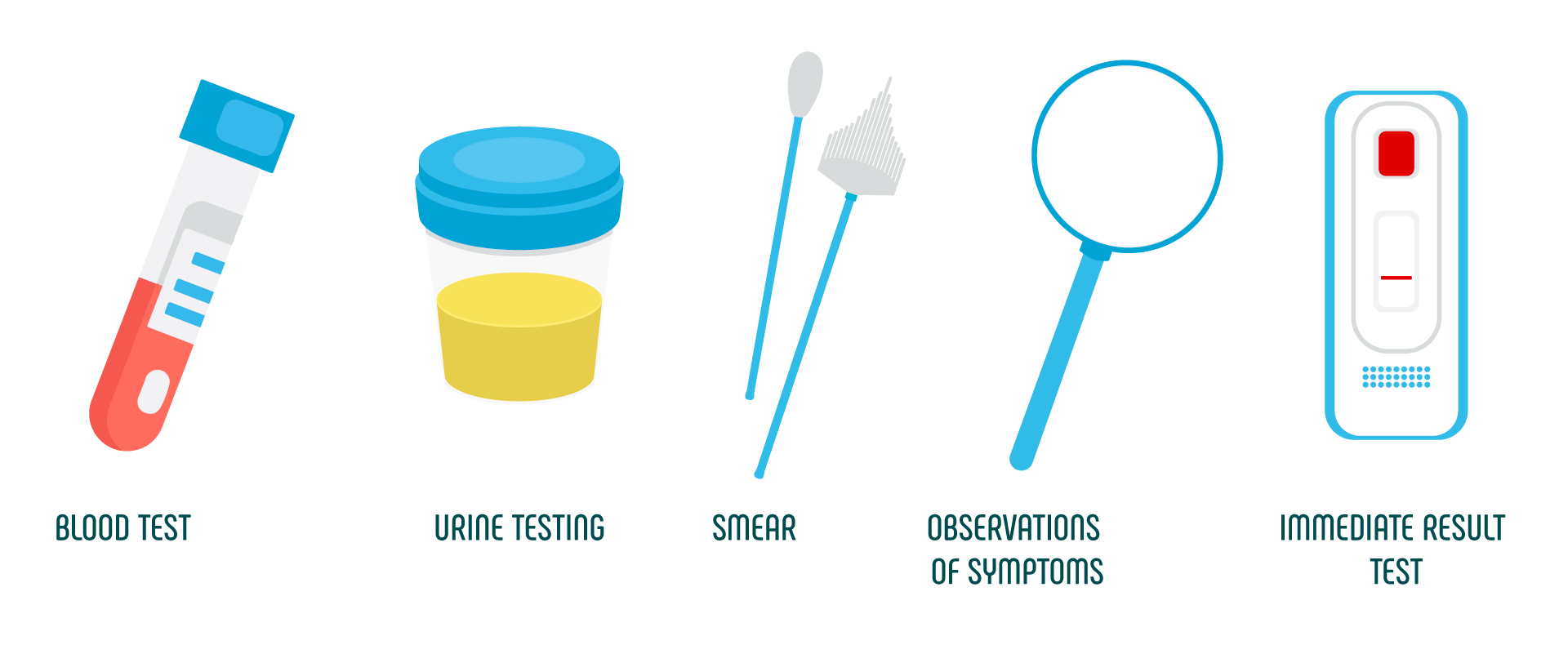
Blood sampling
Prélèvement de sang qui permet de dépister certaines IST mais pas toutes.
You don't need to fast for the blood test.
Pap smear
A Pap smear can be taken on several areas, depending on your sexual practices and gender.
- Vaginal smear
- Cervical smear test
- Buccal swab
- Anal swab
With the exception of cervical smears, which must be performed by a gynecologist, smears don't have to be performed by healthcare personnel. You can even perform them yourself, following your doctor's instructions.
Observation of symptoms
This involves observing any changes in the genital or anal area, such as unusual odors and discharge, redness, pain and itching, pimples and chancres*, or a burning sensation when urinating. You can keep an eye out for changes in your body yourself, and visit your doctor, family planning clinic or HIV & STI referral center if you notice any symptoms.
Immediate results test
Also known as Test Rapide d'Orientation Diagnostique (TROD), a simple drop of blood enables you to find out in just a few minutes whether you are infected with HIV. For the result to be reliable, you need to wait 12 weeks between your high-risk intercourse and the date of the TROD test.
Any reactive (positive) result must be confirmed by a blood test at a specialist HIV centre.
TROD can be performed by non-medical staff trained in screening. Some associations, family planning centers (www.betested.be) and medical centers offer them free of charge and anonymously. It must be CE marked.
You can also buy a self-test in a pharmacy, i.e. a TROD that you can do yourself.
For your information, TRODs are also available for hepatitis C and syphilis.
In the absence of symptoms, it can take some time for tests to detect an STI. Consult this table to find out when you can test for the various STIs. If you have symptoms, you can go straight to the doctor, without waiting for the window period.
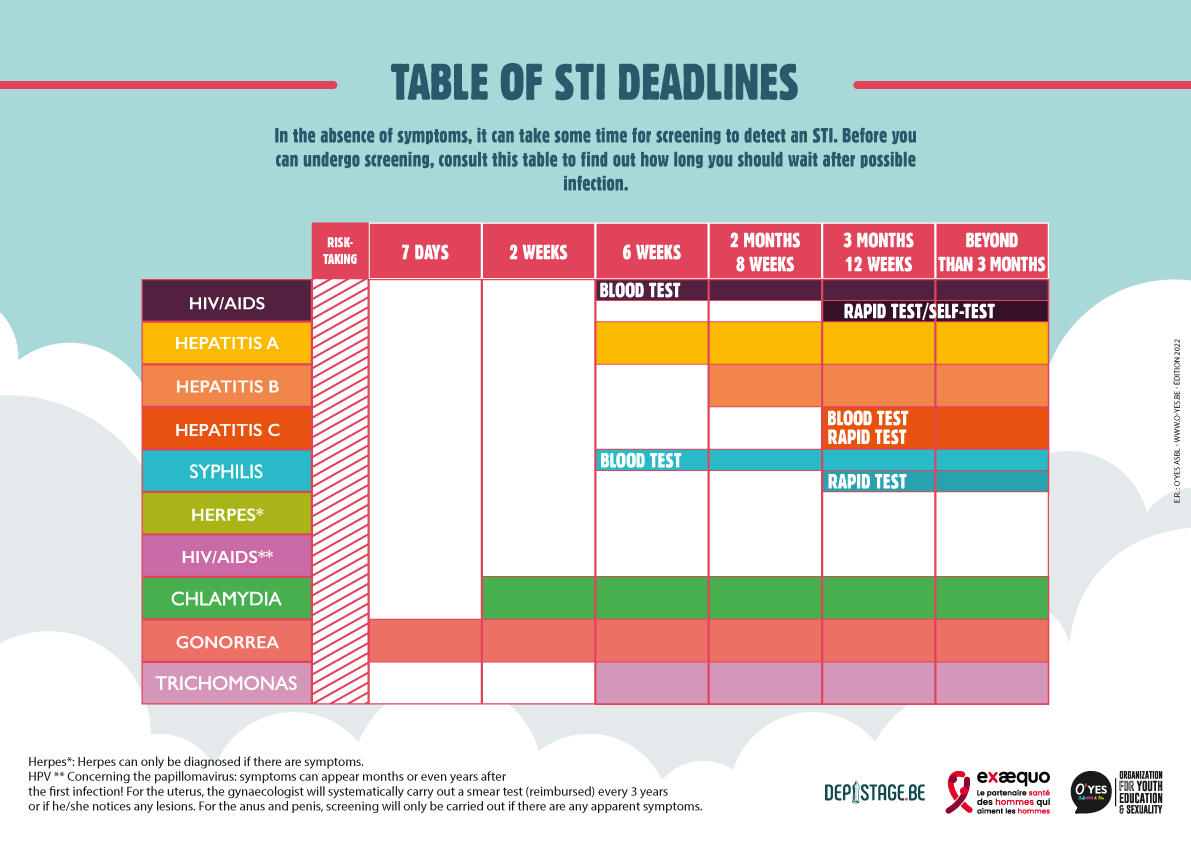
A complete screening for the most common STIs is therefore usually possible 6 weeks after a risky relationship. In some situations, your doctor may ask for a repeat test at 3 months to check for hepatitis B and/or C.
The deadlines given above may vary from one person to another! Don't hesitate to talk about it with a healthcare professional!
